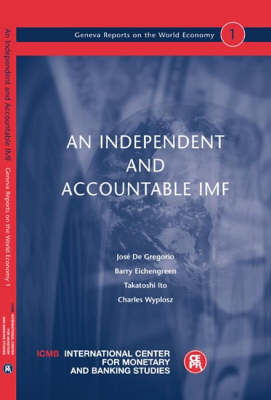Geneva Report on the World Economy
1 primary work
Book 1
An Independent and Accountable IMF
by Jose De Gregorio, Barry J. Eichengreen, Takatoshi Ito, and Charles Wyplosz
Published 1 October 1999
The liberalization of capital movements has deeply affected the IMF's business. Crises occur with more violence and leave deeper scars. The Fund has mobilized ever larger rescue packages and yet, it has often failed to achieve its stated aims. Does it mean that the IMF must transform itself or even, as has been suggested, that it has become useless? The new world economy still needs a Fund, but many of its practices have to be rethought and its role redefined. Its traditional views of exchange rate regimes and the desirability of unfettered capital mobility no longer correspond to the situation of many developing countries. Its mode of intervention needs to recognize that '21st century crises' fundamentally differ from those which dominated during its first fifty years of existence. The continuous blurring of roles between the IMF and the World Bank is fraught with dangers and both institutions must redefine their functions. This report presents a detailed proposal for a new IMF, insisting on accountability and governance.
